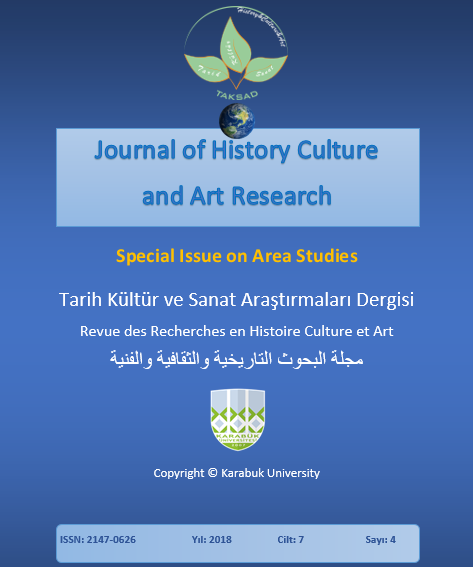Distinction between "Prevention" and "Protection" in International Law on the Sea
DOI:
https://doi.org/10.7596/taksad.v7i4.1832Keywords:
World Ocean, Protection, Securing, Sources of pollution, Conservation, Cooperation, Environmental safety.Abstract
In the light of the increasingly intensive use of the spaces and resources of the World Ocean, the problem of its rapid pollution is one of the new challenges and threats to the security of people. Protection of the World Ocean from pollution is a key measure in the system to ensure universal environmental security, since it is to the Ocean that rightfully has an exceptional role in ensuring life on our planet. The World Ocean is an integral system directly influencing the climate of the whole planet, the plant and animal world, the processes of life and human activity. At the same time, this part of the Earth's hydrosphere is the most polluted from all natural objects.
Protecting and securing the World Ocean from pollution is possible only on the basis of scientific research conducted jointly by representatives of various branches of science: geography and physics, chemistry and ecology, oceanography and geology, and many others. However, it is possible to identify the actions of states necessary to ensure the protection and securing the oceans and, above all, to provide for international standards binding for all states in this field only within the framework of international law. It is important to highlight the fact that international law, in the context of the above-mentioned relations, fulfills two most important functions: regulative and protective, where the latter both in science and in legislation is determined through such related categories as "protection", "securing" and "preservation". Nevertheless, today, we have to state the fact that there is no single point of view on the delineation of these close but not identical concepts.
References
Brinchuk, M. M. (2009). Ecological law. Textbook. Moscow: Eksmo.
Convention on the Protection of the Marine Environment of the Baltic Sea Area (1992). URL: https://lawin.org/convention-on-the-protection-of-the-marine-environment-of-the-baltic-sea-area
Kolodkin, A. L.; Gutsulyak, V. N. & Bobrova, Yu. V. (2007). The World Ocean: the international legal regime: the main problems. Moscow: Statute.
Larina, A. M.; Melnikova, E. B. & Savitsky, E. M. (1997). The Criminal Process of Russia: Lectures-Essays. In V. M. Savitsky (eds.). Moscow.
Makarov, Z. V. (2000). Protection in the Russian Criminal Process: Concept, Types, Subject and Limits. Proceedings of Universities. Jurisprudence, 3.
Maslyaev, V. N. (2009). Protection of the environment. Tutorial. Saransk: Referent
Maybourn, R. (1971). The work of the IP working group on the burning of oil. Journal of Institute Petroleum, 12-16.
Mordovets, A. S. (1996). Socio-legal mechanism for ensuring human rights and citizenship. Saratov.
Nadzimir, P. (1967). The occurrence and fate of oil on the sea. Fairplay International Shipping Journal, 4398.
Ozhegov, S. I. (1994). Russian language dictionary. Ekaterinburg.
Shubina, T. B. (1997). Theoretical problems of the law protection. Thesis of the Candidate of Juridical Sciences. Samara.
Smirnov, A. P. (2010). Comparison of the concepts "Protection of Rights" and "Preservation of rights". Bulletin of Tomsk State University, 331, 123-125.
Speranskaya, L. V. (1978). International legal protection of the marine environment. Moscow: Nauka.
Tarkhanov, I. E. (1997). The UN Convention on the Law of the Sea: A Training Manual. St. Petersburg: GMTU Publishing Center.
The Barcelona Convention for the Protection of the Marine Environment and the Coastal Region of the Mediterranean (1995). URL: http://ec.europa.eu/environment/marine/international-cooperation/regional-sea-conventions/barcelona-convention/index_en.htm
The Guardian (2009). Papers prove Trafigura ship dumped toxic waste in Ivory Coast. 14 May 2009. [Digital source]. URL: https://www.theguardian.com/environment/2009/may/13/trafigura-ivory-coast-documents-toxic-waste
Ulitskiy, J. A. (1983). Ocean of hope. Moscow: Prosveshchenie.
United Nations (1982). Third United Nations Conference on the Law of the Sea: Summary records of meetings: Plenary: 156th to 182nd meetings; First Committee: 55th and 56th meetings; Second Committee: 59th meeting. Documentation. Official Records: Eleventh session: New York, 8 March-30 April 1982. Vol. 16. P.10
United Nations (1982). United Nations Convention on the Law of the Sea 1982. URL: http://www.un.org/depts/los/convention_agreements/texts/unclos/unclos_e.pdf
United Nations (2000). General Assembly. Fifty-fifth session. Oceans and the law of the sea. URL: http://www.un.org/ga/55/
Vernadsky, V. (1988). Philosophical thoughts of a naturalist. Moscow: Nauka.
Downloads
Published
How to Cite
Issue
Section
License
All papers licensed under Creative Commons 4.0 CC-BY.- Share — copy and redistribute the material in any medium or format
- Adapt — remix, transform, and build upon the material for any purpose, even commercially.
Under the following terms:
Attribution — You must give appropriate credit, provide a link to the license, and indicate if changes were made. You may do so in any reasonable manner, but not in any way that suggests the licensor endorses you or your use.
- No additional restrictions — You may not apply legal terms or technological measures that legally restrict others from doing anything the license permits.







